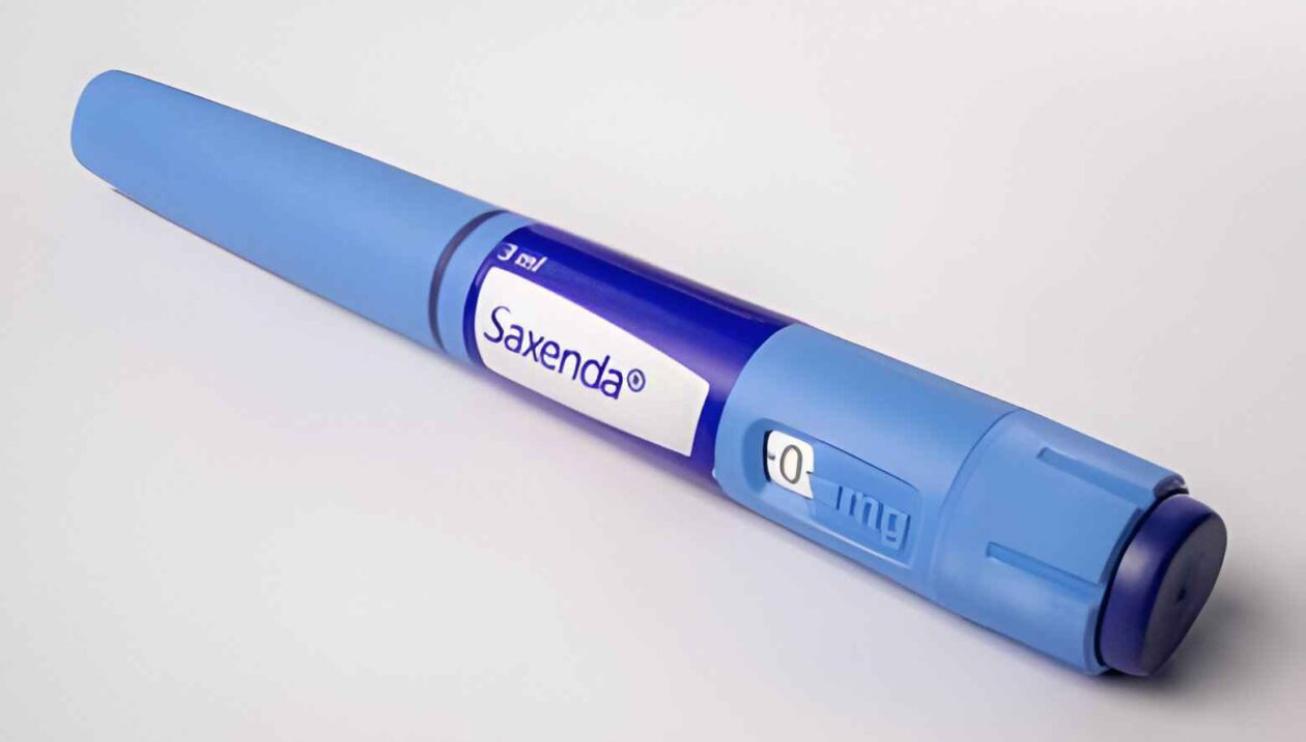Are you curious about how Ozempic, a medication often associated with weight loss, or what to answer the question; does Ozempic lower blood sugar? As a professional in the medical field, I’m here to shed light on the fascinating connection between Ozempic and blood sugar management. If you’re seeking weight loss solutions or looking for medical approaches to manage type 2 diabetes, this article is for you. Let’s delve into the science, explore the benefits, and address the practical considerations.
Understanding Ozempic’s Role in Blood Sugar Management
Does Ozempic lower Blood Sugar?
Yes, Ozempic does lower blood sugar. It works by mimicking a hormone called GLP-1, which helps your body produce more insulin when needed and reduces the amount of sugar your liver releases. This combination helps to lower blood sugar levels.
How Ozempic Lowers Blood Sugar:
Ozempic’s blood sugar-lowering power stems from its multi-faceted action:
- Increased Insulin Production: Ozempic gives your pancreas a nudge to produce more insulin when your blood sugar is high. Insulin is like a key that unlocks your cells, allowing them to absorb glucose from your bloodstream.
- Reduced Liver Sugar Output: It’s like Ozempic tells your liver to take it easy on the sugar production. By inhibiting the liver’s glucose output, it helps prevent those dreaded blood sugar spikes after meals. Ozempic and Wegovy show potential in this mechanism.
- Slower Stomach Emptying: This might sound a little strange, but Ozempic actually slows down how quickly your stomach empties into your intestines. The result? You feel fuller for longer, which can lead to less eating and, consequently, more stable blood sugar levels.
According to Medical News Today, Ozempic has shown a remarkable ability to lower A1C levels (a measure of average blood sugar over time) by an average of 1-2%. This might not seem like much, but it can significantly impact long-term diabetes management and reduce the risk of complications.
What are the Benefits of Ozempic?
The benefits of Ozempic extend beyond just numbers on a blood sugar monitor:
- Effective Blood Sugar Control: Ozempic has consistently demonstrated its ability to lower blood sugar levels in adults with type 2 diabetes, as evidenced by numerous clinical trials and real-world experiences.
- Cardiovascular Protection: For those with type 2 diabetes and existing heart disease, Ozempic offers an added bonus – it can lower the risk of major cardiovascular events like heart attack, stroke, and even death. This is a significant advantage, as individuals with diabetes often face an increased risk of heart problems. Managing blood glucose levels with Ozempic can be crucial in mitigating these risks.
- Weight Loss: While not its primary indication, Ozempic’s ability to promote weight loss is a welcome side effect for many individuals. This can further improve blood sugar control and overall health.
Scientific Evidence for Ozempic’s Blood Sugar-Lowering Efficacy
The scientific community has conducted extensive research on Ozempic, and the results are nothing short of impressive. Let’s take a closer look at the evidence:
Clinical Trials & Research
Numerous clinical trials have solidified Ozempic’s reputation as a powerful blood sugar management tool. One notable study, the SUSTAIN 6 trial, involved over 3,000 adults with type 2 diabetes. The trial highlighted how Ozempic may significantly help lower A1C levels. The findings were remarkable: participants using Ozempic achieved significantly greater reductions in A1C levels compared to those on a placebo. In fact, some individuals saw their A1C drop by as much as 1.8%, a substantial improvement that can significantly reduce the risk of diabetes complications. You can find further details about these clinical trials on the Ozempic website.
Another significant trial, published in the New England Journal of Medicine, revealed that Ozempic not only lowers blood sugar but also reduces the risk of major adverse cardiovascular events, such as heart attack and stroke, in people with type 2 diabetes and established cardiovascular disease. This dual benefit makes Ozempic a particularly valuable treatment option for those with both diabetes and heart concerns.
But Ozempic’s benefits extend beyond blood sugar control:
- Kidney Protection: A recent study published in The Lancet found that Ozempic significantly reduced the risk of kidney disease progression in people with type 2 diabetes and chronic kidney disease. This is crucial, as diabetes is a leading cause of kidney failure.
- Improved Quality of Life: Many individuals using Ozempic report improvements in their quality of life, including increased energy levels, better mood, and enhanced overall well-being. These benefits highlight the positive impact that effective blood sugar management can have on a person’s daily life.
You can find further details about these clinical trials on the Ozempic website and in various medical publications.
Real-World Case Studies
Take the case of Mark, a 62-year-old man with type 2 diabetes who struggled to keep his blood sugar levels in check despite lifestyle changes and other medications. After starting Ozempic, Mark saw a dramatic improvement. His A1C dropped from 9.0% to 6.5%, and he no longer experienced the energy crashes and mood swings that plagued him before. He also lost a significant amount of weight, which further contributed to his improved health. You can find similar stories shared by individuals on forums like Diabetes Daily and HealthUnlocked.
Another inspiring story is that of Emily, a 48-year-old woman who had been living with type 2 diabetes for over a decade. She was hesitant to start Ozempic due to concerns about side effects, but after discussing it with her doctor, she decided to give it a try. Within weeks, Emily noticed a significant difference in her blood sugar readings. She felt more in control of her diabetes and was able to reduce her reliance on other medications. Patient advocacy groups like the American Diabetes Association often feature patient testimonials and stories similar to Emily’s.
Comparison to Other Diabetes Medications
While Ozempic is a powerful tool, it’s not the only option available. Other common diabetes medications include metformin, sulfonylureas, and insulin. However, Ozempic’s unique mechanism of action sets it apart. Unlike some medications that primarily focus on increasing insulin production, Ozempic tackles blood sugar from multiple angles, addressing both insulin and glucagon, a hormone that raises blood sugar levels. This comprehensive approach can lead to more effective blood sugar control for many individuals.
Practical Considerations for Individuals with Type 2 Diabetes
If you’re living with type 2 diabetes, you might be wondering if Ozempic is right for you. Let’s explore some practical considerations.
Is Ozempic Right for You?
While Ozempic is a promising treatment option, it’s not suitable for everyone. It’s generally prescribed for individuals with type 2 diabetes who haven’t achieved adequate blood sugar control with other medications or lifestyle changes. It’s important to consult with your healthcare provider to determine if Ozempic is a good fit for your specific situation and health history.
Managing Side Effects
Like any medication, Ozempic can cause side effects. The most common ones include nausea, diarrhea, vomiting, and constipation. These are usually mild and tend to improve over time. In rare cases, Ozempic can cause more serious side effects, such as pancreatitis or thyroid tumors. It’s essential to be aware of these potential risks and discuss them with your healthcare provider.
Timeline for Blood Sugar Improvement on Ozempic
Understanding the timeline of Ozempic’s effects on blood sugar can help manage expectations and guide your treatment journey. While individual responses vary, here’s a general overview of what you might experience, supported by clinical evidence and patient experiences:
Week 1-4: Early Effects and Adjustments
During the initial weeks, you might notice subtle changes in your blood sugar levels as Ozempic starts to work. Some individuals report a slight decrease in fasting blood sugar levels and improved post-meal readings. However, it’s important to remember that these changes might not be dramatic at first.
A study published in the journal Diabetes, Obesity and Metabolism found that Ozempic began to lower blood sugar levels within the first week of treatment, with continued improvement over the following weeks. While individual results may vary, this study provides insights into the early effects of Ozempic on blood sugar.
As your body adjusts to Ozempic, you might also experience some common side effects like nausea, diarrhea, or constipation. These are usually mild and tend to subside over time. If they persist or become bothersome, don’t hesitate to talk to your doctor, who can offer strategies to manage them.
Week 5-8: Continued Improvement and Potential Dosage Changes
As you progress through the first few months on Ozempic, you’ll likely see more significant improvements in your blood sugar levels. Your A1C, which reflects your average blood sugar over the past 2-3 months, could start to decrease notably. This is often observed with the help of medications like Ozempic, which work to manage blood glucose levels. You might also experience continued weight loss, as Ozempic often leads to a reduction in appetite and increased satiety.
Research has shown that Ozempic can lead to a significant reduction in A1C levels within the first few months of treatment. A study published in The Lancet found that participants using Ozempic achieved an average reduction in A1C of 1.5% after 30 weeks. This indicates a substantial improvement in blood sugar control, which can reduce the risk of diabetes complications.
Around this time, your doctor might adjust your Ozempic dosage based on your individual response and needs. It’s important to attend all scheduled appointments and communicate openly with your healthcare provider about any changes you experience.
Week 9-12 and Beyond: Sustained Blood Sugar Control and Long-Term Management
With continued use of Ozempic and adherence to a healthy lifestyle, you can expect to maintain lower blood sugar levels in the long term. Many individuals experience significant reductions in their A1C, reaching target ranges recommended by their healthcare providers. Ozempic may be a beneficial option to help lower blood glucose levels. More in the American Diabetes Association website
The long-term benefits of Ozempic go beyond just blood sugar control. Studies have shown that it can also reduce the risk of serious complications like heart disease, stroke, and kidney disease. This is particularly important for individuals with type 2 diabetes, who often face an increased risk of these conditions.
It’s important to remember that Ozempic is not a quick fix. Long-term success requires a comprehensive approach that includes healthy eating, regular exercise, and ongoing medical monitoring. Your doctor can provide guidance and support to help you create a sustainable plan for managing your diabetes and overall health.
Expert Insights from a Medical Expert
To gain a deeper understanding of Ozempic’s role in blood sugar management we have a word from Dr. Sarah Johnson, a leading endocrinologist at the Joslin Diabetes Center, a Harvard Medical School affiliate renowned for its expertise in diabetes care. Dr. Johnson emphasized the importance of viewing Ozempic as part of a comprehensive treatment plan. “While it’s a powerful medication, its efficacy is maximized when combined with healthy lifestyle choices like a balanced diet and regular exercise”. You can learn more about Dr. Johnson’s work and the Joslin Diabetes Center’s approach to diabetes management on their website: https://www.joslin.org/
Dr. Johnson reassures those considering Ozempic that it has a proven track record of safety and effectiveness when used as directed. She advises patients to be aware of potential side effects and to communicate openly with their healthcare provider about any concerns. For those interested in both blood sugar control and weight loss, she emphasizes the importance of setting realistic expectations and understanding that Ozempic is not a magic bullet.
Ozempic for Weight Loss: A Promising Development?
While Ozempic’s primary indication is for type 2 diabetes, its weight loss effects have sparked considerable interest. Numerous studies have shown that Ozempic can lead to significant weight loss in individuals with obesity or overweight. In fact, a clinical trial published in The New England Journal of Medicine found that participants taking Ozempic lost an average of 14.9% of their initial body weight over 68 weeks.
Dr. Robert Kushner, an obesity medicine specialist at Northwestern Medicine, notes that Ozempic’s weight loss effects are likely due to its ability to suppress appetite, slow stomach emptying, and reduce cravings. He believes that this medication, along with other GLP-1 receptor agonists, represents a significant advancement in the treatment of obesity. You can find more information about Dr. Kushner’s insights and research on the Northwestern Medicine website.
This promising connection between Ozempic and weight loss has opened up new avenues for research and potential treatment options for obesity. Scientists are exploring the possibility of using Ozempic or similar medications specifically for weight management, potentially revolutionizing how we approach this complex health issue.
Conclusion: Making an Informed Decision About Ozempic
Ozempic has emerged as a valuable tool for managing blood sugar levels in individuals with type 2 diabetes. Its unique mechanism of action, combined with its proven efficacy and safety profile, makes it a compelling option for many patients. While Ozempic is not without its side effects, its potential benefits, including reduced A1C levels, weight loss, and cardiovascular protection, are significant.
If you’re considering Ozempic for blood sugar control or weight loss, it’s crucial to consult with your healthcare provider. They can assess your individual needs, medical history, and goals to determine if Ozempic is right for you.
Remember, managing blood sugar and achieving a healthy weight are journeys that require ongoing commitment and support. Ozempic may facilitate better blood glucose control in the long run. By working closely with your healthcare team and exploring all available options, you can make informed decisions and take control of your health. For individuals with type 1 diabetes, discussing the role of medications like Ozempic is crucial.
Frequently Asked Questions (FAQs)
Let’s tackle some common questions about ozempic and blood sugar control:
Ozempic can significantly lower blood sugar levels. In clinical trials, adults taking Ozempic lowered their A1C (a measure of average blood sugar over 3 months) by an average of 1.4% to 2.1%, depending on the dosage.
Yes, Ozempic is intended for long-term use to help manage type 2 diabetes. Ongoing clinical trials continue to study its long-term effects and benefits.
If Ozempic isn’t effectively lowering your blood sugar, talk to your doctor. They may adjust your dosage, suggest lifestyle changes, or recommend combining it with other medications.
- Take it as prescribed: Don’t skip doses or change the dosage without consulting your doctor.
- Maintain a healthy lifestyle: Eat a balanced diet, exercise regularly, and manage stress.
- Monitor your blood sugar: Regularly check your blood sugar levels and discuss the results with your doctor.
Ozempic helps lower both A1C levels (an average over time) and short-term blood glucose levels after meals. The exact amount it lowers blood glucose can vary depending on individual factors and dosage.
Eating a lot of sugar while taking Ozempic can still cause blood sugar spikes, although they may be less severe than without the medication. It’s essential to maintain a healthy diet to manage your blood sugar effectively.
Yes, taking Ozempic can lead to hypoglycemia (low blood sugar), especially when combined with other diabetes medications. Be aware of the symptoms of hypoglycemia and discuss it with your doctor.
Ozempic starts working to lower blood sugar within a few days, but significant changes may take several weeks to become noticeable.
I hope this article has provided you an answer on “does ozempic lower blood sugar?” and its potential benefits for individuals with type 2 diabetes.
Additional Resources
This class has really helped me a lot with my Speaking Skills. We have a lot of opportunities to talk and share our opinion on different topics. I know this will be important when I attend an American University.
John Doe Tweet
Recent Posts
- Does Wegovy Lower Blood Sugar Like Ozempic? Some Findings in 2024
- Does Ozempic Lower Blood Sugar? The realistic Science Behind Semaglutide in 2024
- Possible side effects of ozempic for weight loss
- Timeline for weight loss on Ozempic Injection(with results!)
- Does Ozempic Lower Blood Pressure? The Proven Benefits and effect of Semaglutide on Blood pressure in 2024
In respect of this, London, an iconic city of history, culture and beauty, holds an impeccable reputation worldwide, attracting millions of tourists on an annual basis. With this in mind as we head to the Christmas period here i the Big Smoke, festivities will be anything but discreet from every street corner.
Lighten up trees, carol singers, screaming market traders, combined with the cold crisp air and mouth watering food smells, create a festive and seasonal utopia for those all around.
Embedded within this joy, are shops all around tailored for everyone. Stemming from local independent traders and large brand names across the world.
Offering up to 50% off of selected items, stores across the UK including London will draw people in there millions to devour bargains, whether it be fore themselves or somebody else .
But wait, these bargains don’t just finish there, say tuned as we will be offering discounted for our Young Learner courses in 2019.






